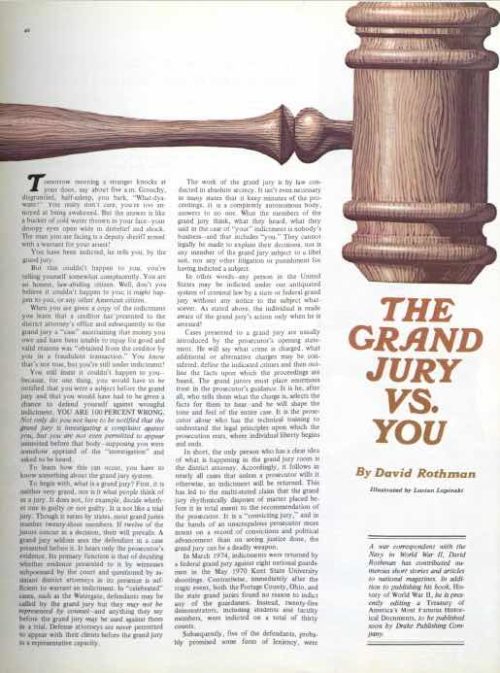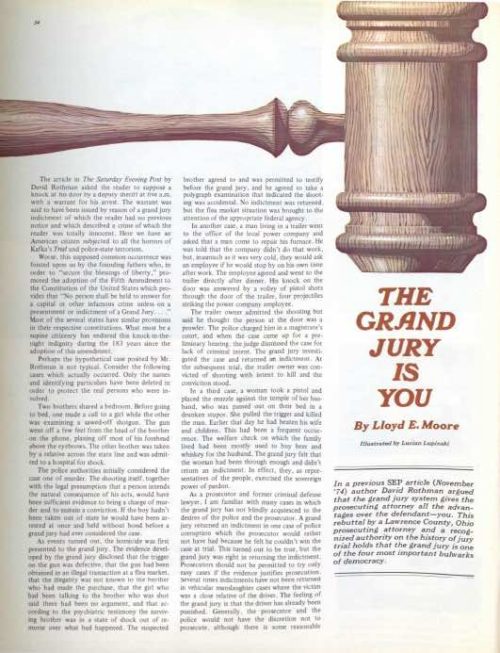Are Grand Juries Fair?
Grand juries are playing a large role in special counsel Robert Mueller’s investigations into Russian meddling in the 2016 presidential elections, recently handing down sealed indictments against former Trump campaign chairman Paul Manafort and his associate Rick Gates.
The United States is one of only a handful of nations to still use grand juries. Nearly every other nation that once used them has abandoned the practice. They have shifted the functions of a grand jury — which decides whether or not to prosecute a case — to other offices in their legal systems.
But grand juries are still important in America. The Fifth Amendment requires federal courts to use grand juries before prosecuting “capital, or otherwise infamous crime.”
In 1974 and 1975, following the grand jury investigation into Watergate, the role of grand juries was debated in The Saturday Evening Post.
In “The Grand Jury vs. You,” historian David Rothman argued that the indictment process should be in the hands of judges, and not grand juries. Rothman objected to grand juries’ secrecy, as well as the jury members’ ignorance of the law as it pertained to the cases they were being asked to judge.

Six months after Rothman’s article appeared, Lloyd E. Moore defended the system in his article, “The Grand Jury Is You.” Moore pointed out several unique benefits of the grand jury system. For instance, if a grand jury votes not to proceed with prosecution, the subject of the inquiry might never even know he or she was being investigated. Just as important, the suspect’s family, neighbors, and employers wouldn’t know either. Another benefit he noted is the grand jury’s ability to follow their inquiries to their conclusion, despite obstruction from government officials as high up as the president.
